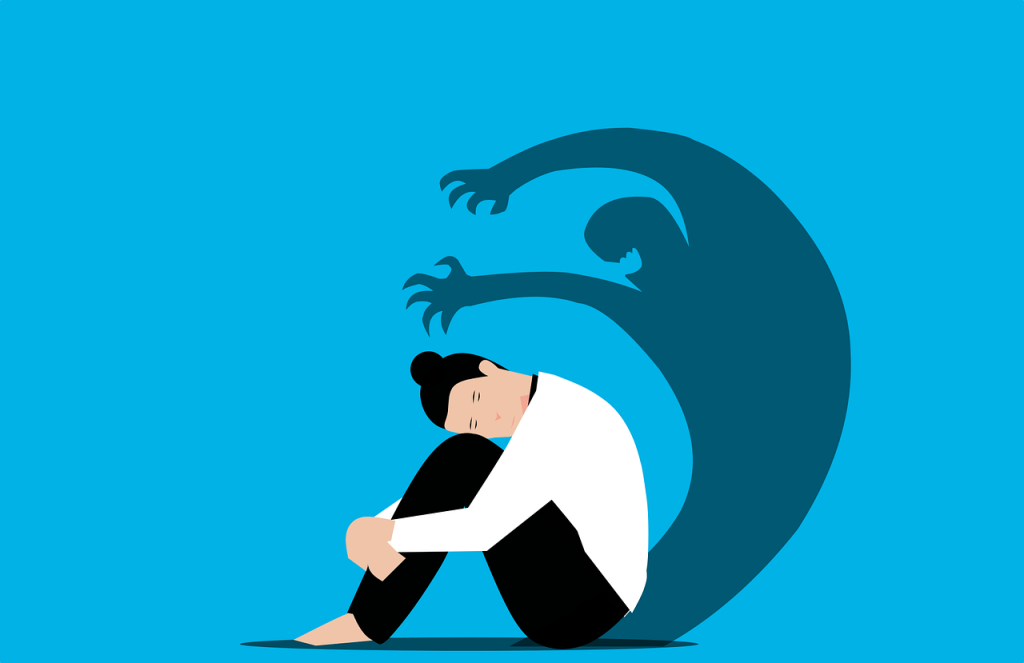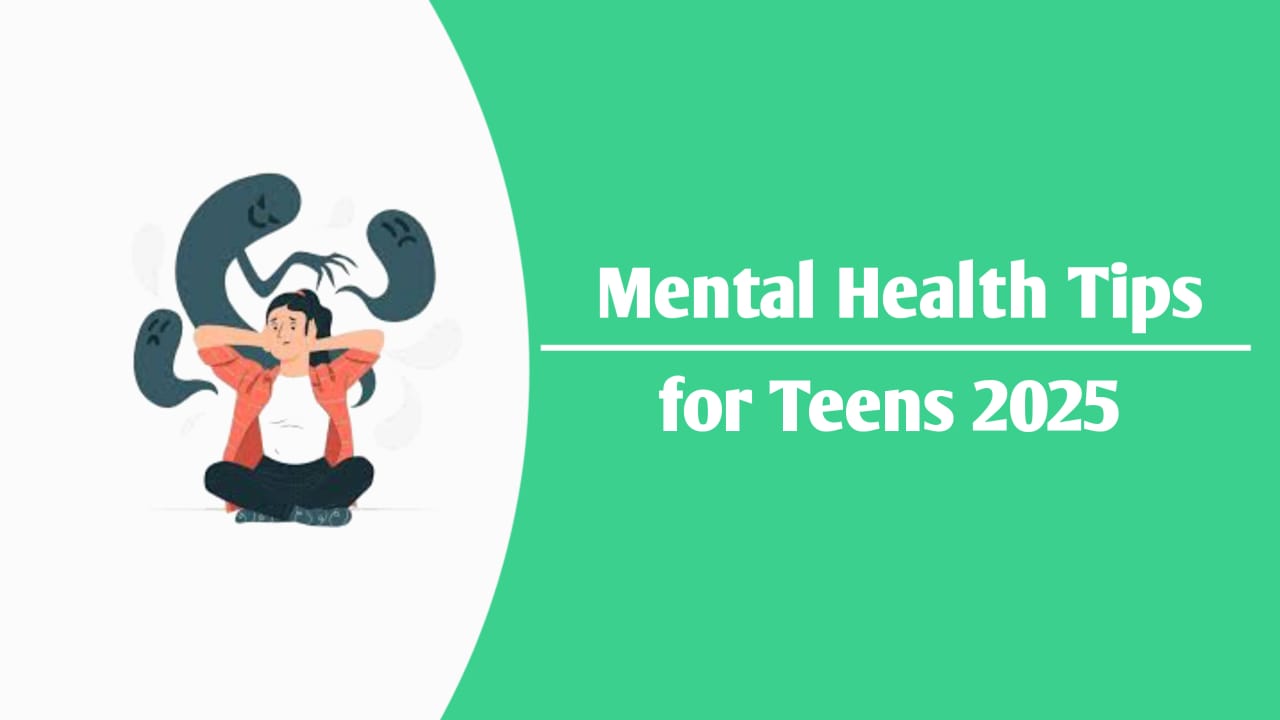Table of Contents
How mental health problems are growing among teenagers
- Mental Health Tips for Teens : A 15-year-old high school student juggling homework, extracurricular activities, and social life. On the surface, everything seems fine. But underneath, they’re grappling with anxiety, stress, and a sense of overwhelming pressure. This scenario is not rare. In fact, it’s becoming increasingly common.
- According to a report by the National Institute of Mental Health (NIMH), one in three adolescents will experience an anxiety disorder before the age of 18. Additionally, the Centers for Disease Control and Prevention (CDC) notes that suicide is the second leading cause of death among teens. These alarming statistics highlight the urgent need to address mental health issues in teens head-on.
The Unique Challenges Teens Face Today
- Teens today are facing challenges that previous generations could not have imagined. With the advent of social media, the pressure to present a perfect life online can be overwhelming. Cyberbullying, FOMO (fear of missing out), and the constant comparison with peers can lead to severe anxiety and depression. Combine this with academic pressures, family expectations, and the turbulence of adolescence, and it’s clear that teens are navigating a complex web of stressors.
- Case Study Insight: A 2019 study published in the Journal of Abnormal Psychology found that between 2009 and 2017, the number of teens reporting symptoms of major depression increased by 52%. The study also found that social media use was significantly correlated with increased rates of depression and anxiety. Teens who spent more than three hours a day on social media were 35% more likely to suffer from depression.
Effects of neglect on mental health
- Ignoring mental health issues in teens doesn’t just affect their emotional well-being—it has far-reaching consequences. Poor mental health can lead to a decline in academic performance, strained relationships with family and friends, and even substance abuse. Teens who do not receive proper support and intervention may carry these issues into adulthood, leading to long-term struggles with mental health.
- The stigma around mental health often prevents teens from seeking help. Many teens fear being labeled as “weak” or “crazy” if they admit to struggling with mental health issues. This stigma, combined with a lack of understanding and resources, leaves many teens to suffer in silence.
- Factual Data: According to the American Psychological Association (APA), 60% of teens with depression do not receive treatment. This lack of intervention can lead to a vicious cycle where mental health issues worsen over time, making it even harder for teens to cope.
Practical Mental Health Tips for Teens
Addressing mental health requires a proactive approach. Here are some practical tips that teens can implement to take control of their mental health:
1. Recognize and Acknowledge Your Feelings
The first step towards better mental health is acknowledging that it’s okay to not be okay. Teens often feel pressured to hide their emotions, but bottling up feelings can lead to more severe issues down the line. Understanding that it’s normal to feel stressed, anxious, or sad is crucial.
- Actionable Tip: Keep a journal to track your emotions. Writing down your thoughts and feelings can help you understand patterns in your mood and identify triggers that cause stress or anxiety. A study published in Advances in Psychiatric Treatment found that journaling can reduce symptoms of depression and anxiety in teens by helping them process their emotions.
2. Limit Social Media Use
Social media is a double-edged sword. While it can be a great way to stay connected with friends, excessive use can lead to feelings of inadequacy and loneliness. Studies have shown that teens who spend too much time on social media are more likely to experience anxiety, depression, and sleep disturbances.
- Actionable Tip: Set a daily limit for social media use. Apps like Screen Time on iOS or Digital Wellbeing on Android can help you monitor and limit the time you spend on social media. Try to replace some of that time with activities that make you feel good, such as reading, exercising, or spending time with friends and family in person.
- Case Study Insight: A study conducted by the University of Pennsylvania found that limiting social media use to 30 minutes a day can significantly reduce feelings of loneliness and depression in teens. Participants who reduced their social media usage reported a marked improvement in their overall mood and well-being.
3. Stay Active
Exercise is not just good for your body—it’s essential for your mind. Physical activity releases endorphins, which are natural mood lifters. Frequent exercise can enhance self-esteem, improve sleep, and lessen the symptoms of anxiety and sadness.
- Actionable Tip: Aim for at least 30 minutes of physical activity each day. It’s not necessary to work out vigorously for this. Even activities like walking, biking, or playing a sport can have a positive impact on your mental health.
- Factual Data: According to the CDC, regular physical activity can reduce the risk of developing depression by 30%. For teens who are already struggling with mental health issues, exercise can serve as a valuable coping mechanism.
4. Practice Mindfulness and Relaxation Techniques
Being mindful entails giving your environment your whole attention and being in the present moment. It can help you manage stress by teaching you to focus on the present rather than worrying about the past or future. Techniques like deep breathing, meditation, and progressive muscle relaxation can help you stay calm and centered.
- Actionable Tip: Start your day with a simple mindfulness exercise. Spend five minutes focusing on your breathing or observing your surroundings without judgment. Apps like Headspace or Calm can guide you through mindfulness and meditation exercises.
- Case Study Insight: A 2018 study published in The Journal of Clinical Psychology found that teens who practiced mindfulness for eight weeks showed significant reductions in symptoms of anxiety and depression. The study highlighted that even short, daily mindfulness exercises can lead to long-term mental health benefits.
5. Build a Support System
Having a robust support network is essential to preserving mental well-being. Surround yourself with people who care about you and who you can talk to when you’re feeling down. This could be friends, family members, teachers, or counselors.
- Actionable Tip: Don’t be afraid to reach out for help. If you’re struggling, talk to someone you trust. If you’re not comfortable talking to someone you know, consider reaching out to a mental health professional or a helpline.
- Factual Data: The National Alliance on Mental Illness (NAMI) reports that teens who have a strong support system are 50% less likely to experience severe mental health issues. Having someone to talk to can make a significant difference in how teens cope with stress and anxiety.
6. Prioritize Sleep
Sleep is often overlooked when it comes to mental health, but it plays a crucial role in how we feel and function. Stress, anxiety, and depressive symptoms can all be made worse by sleep deprivation. Unfortunately, many teens struggle with getting enough sleep due to academic pressures, social activities, and screen time.
- Actionable Tip: Establish a regular sleep routine. Every day, including on the weekends, do your best to go to bed and get up at the same time. Create a relaxing bedtime ritual, such as reading a book or listening to calming music, to help you wind down.
- Factual Data: According to the Sleep Foundation, teens need between 8-10 hours of sleep each night. However, only 15% of teens report getting the recommended amount of sleep. Prioritizing sleep can lead to significant improvements in mood, energy levels, and overall mental health.
7. Eat a Balanced Diet
Feelings may be directly impacted by what you eat. A diet high in processed foods, sugar, and caffeine can lead to mood swings, irritability, and fatigue. On the other hand, a balanced diet rich in fruits, vegetables, whole grains, and lean proteins can support both physical and mental health.
- Actionable Tip: Pay attention to how different foods make you feel. Try to include more whole foods in your diet and limit your intake of junk food. Drinking plenty of water is also essential for maintaining good mental and physical health.
- Factual Data: A study published in The Lancet Psychiatry found that a diet rich in fruits, vegetables, and whole grains is associated with a lower risk of depression in teens. The study emphasizes the importance of nutrition in maintaining good mental health.
8. Set Realistic Goals
Teens often feel overwhelmed by the pressure to succeed academically, socially, and personally. Setting realistic goals can help reduce stress and make tasks more manageable. Break down more difficult goals into smaller, more achievable goals, and celebrate your progress along the way.
- Actionable Tip: Use a planner or a to-do list to organize your tasks and prioritize what’s most important. Never hesitate to seek assistance if you’re feeling overburdened. Recall that it’s OK to modify your objectives as necessary.
- Case Study Insight: A study published in Child Development found that teens who set realistic, achievable goals were more likely to experience a sense of accomplishment and well-being. The study also found that goal-setting can improve academic performance and reduce stress.
9. Learn to Say No
Teens often feel the need to please others, which can lead to taking on too much responsibility and becoming overwhelmed. Saying no is a crucial life skill that may help you safeguard your emotional well-being.
- Actionable Tip: Practice setting boundaries with friends, family, and teachers. It’s okay to say no to activities or commitments that you’re not comfortable with or that will add unnecessary stress to your life.
- Factual Data: According to a study published in The Journal of Youth and Adolescence, teens who practice assertiveness and set healthy boundaries are less likely to experience burnout and are better able to manage stress.
10. Seek Professional Help When Needed
It’s important to recognize when you need help beyond what friends and family can provide. If you’re struggling with persistent feelings of sadness, anxiety, or hopelessness, it’s crucial to seek professional help. A psychiatrist, therapist, or counselor can offer you the resources and encouragement you need to take care of your mental health.
- Actionable Tip: Don’t wait until things get worse. If you’re feeling overwhelmed, reach out to a mental health professional as soon as possible. Many schools have counselors who can provide support, or you can ask your doctor for a referral to a therapist.
- Factual Data: The American Academy of Pediatrics (AAP) recommends that teens who experience symptoms of depression or anxiety for more than two weeks seek professional help. Early intervention is key to preventing more serious mental health issues down the line.
Conclusion: Empowering Teens to Take Charge of Their Mental Health

- It’s never too early to begin taking care of one’s mental health because it’s equally as vital as one’s physical health. By recognizing the challenges teens face today and taking proactive steps to manage stress, anxiety, and depression, teens can build resilience and develop healthy coping mechanisms that will serve them well into adulthood.
- Remember, you’re not alone in this journey. Whether it’s through journaling, limiting social media, staying active, or seeking professional help, there are many ways to take control of your mental health. The key is to start small, stay consistent, and reach out for support when you need it.
- Mental health is a journey, not a destination. By implementing these tips and strategies, you can navigate the challenges of adolescence with confidence and build a strong foundation for a healthy, happy life.
Call to Action: Let’s Talk About It
Do not be reluctant to seek assistance if you or someone you know is experiencing mental health issues. Share this post with your friends, start a conversation, and let’s work together to break the stigma around mental health. Your well-being matters, and it’s okay to ask for support.
